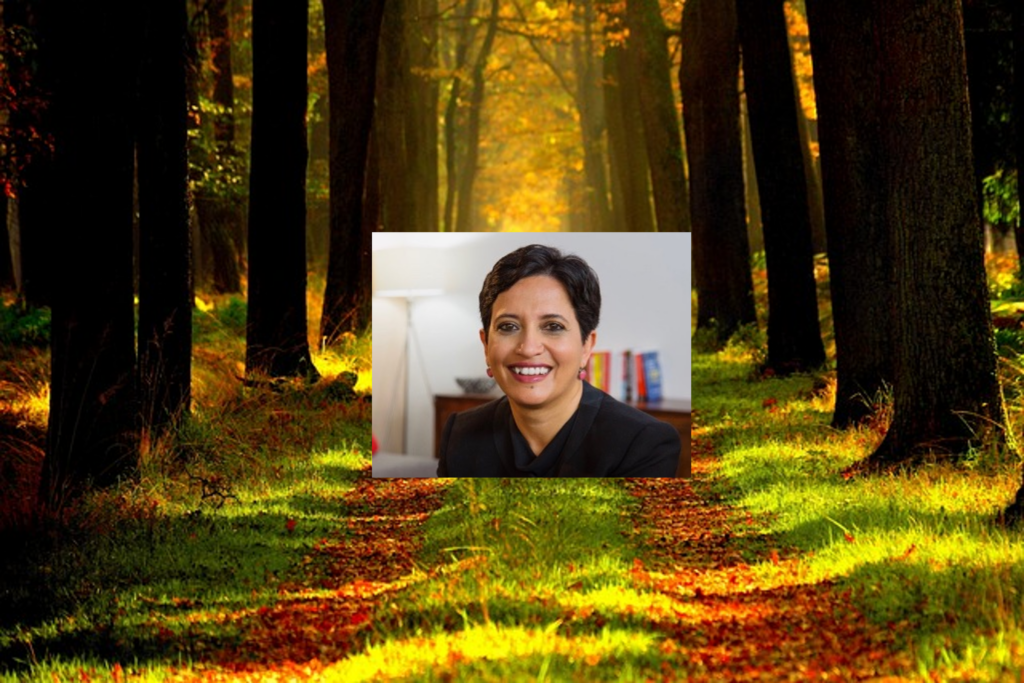Entrepreneur Journeys
The Startup Velocity Question: What Hinders Acceleration in VC Funded Companies?

I have been running 1Mby1M since 2010. I find myself saying to entrepreneurs ad nauseam that VCs want to invest in startups that can go from zero to $100 million in revenue in 5 to 7 years.
Startups that do not have what it takes to achieve velocity should not be venture funded.
Experienced VCs, over time, have developed heuristics to gauge what constitutes a high growth venture investment thesis.
>>>1Mby1M Udemy Courses with Sramana Mitra: Bootstrapping

Over the course of two years, we have released over 70 courses on Udemy with the aim to democratize entrepreneurship education at scale globally. This series of posts aims to help you find the one you need easily and provide you with discount coupons.
>>>Bootstrapping an App to $10 Million in Revenue: Christophe Bach, CEO of TextMe (Part 1)
If you haven’t already, please study our Bootstrapping Course and Investor Introductions page.
This is a wonderful story of a self-financed company that has built itself up to $10 million in profitable revenue. Led by Christophe Bach, an experienced and successful serial entrepreneur, it’s a text-book case study of effective bootstrapping.
Sramana: Christophe, to start, tell me your back story. Where are you from, where were you born?
Christophe: I am the Co-Founder and CEO of TextMe and prior to TextMe, I co-founded three companies in Europe. I was born and raised in Paris, France. I have been living between Paris and San Francisco for the last 15 years.
Sramana: Did you do college, university in Paris as well?
Christophe: Yes, I did.
Sramana: What is your background? Is it a technical background or business background?
Christophe: I went to an engineering school. They now call it Polytechnique.
Sramana: What did you do after polytechnique?
Featured Videos
Can 1M/1M Help Me Raise Money?
How Does 1M/1M Democratize Entrepreneurship Education?
How Does 1M/1M Democratize Management Consulting?
When Is The Right Time To Join 1M/1M?
Can 1M/1M Help Me With Business Development?
Can 1M/1M Help Me With Market Sizing?
Can 1M/1M Help Me Validate My Product?
Will I Have Private 1-on-1 Sessions In 1M/1M?
How Does 1M/1M Help Entrepreneurs Connect With Silicon Valley?
Mentoring or Consulting?
Why Does 1M/1M Charge $1000 a Year?
Why Does 1M/1M Partner With Local Organizations?
Why Don\’t Mentoring Networks Work?
Why Is It Important To Study With 1M/1M Now?
Dan Stewart Story
Vikrant Mathur Story
Bootstrapped Journey of a Child Entrepreneur in India: Varun Shoor, CEO of Kayako (Part 1)
If you haven’t already, please study our Bootstrapping Course and Investor Introductions page.
[Also check out my Entrepreneur Journeys book, Seed India – How To Navigate The Seed Capital Gap in India]
Varun Shoor is the founder and CEO of Kayako, a company offering advanced helpdesk management software. Varun steers the overall direction of the company and as customer experience fanatic and lead product architect, takes an active role in the design and development of Kayako. One of Varun’s greatest passions is design. Applying modern, consumer-like design to stuffy business helpdesk software was Varun’s brainchild, and with it he founded Kayako in 2001.
Sramana: Varun, let’s start with your personal story. Where are you from? What is the backstory to Kayako?
Varun Shoor: I was born in Jalandhar, a city in Punjab. I have had no formal education. I started Kayako when I was 17. My family background is industrial by nature. My father is into manufacturing, primary tools such as hammers.
Sramana: Does he work for himself?
Varun Shoor: He is also an entrepreneur. He grew his business into what it is today. He works for himself and he owns his factory. >>>
Solo Founder, Bootstrapping to $7 Million in India: Wingify CEO Paras Chopra (Part 1)
If you haven’t already, please study our Bootstrapping Course and Investor Introductions page.
[Also check out my Entrepreneur Journeys book, Seed India – How To Navigate The Seed Capital Gap in India]
Paras Chopra is the founder and CEO of Wingify, a company that builds web analytics and optimization technology to include its flagship product Visual Website Optimizer. Prior to Wingify, he was an R&D engineer at Aspiring Minds. He has also founded Kroomsa which is a website to help Indian bands promote their music on the web. Prior to founding Kroomsa he was an Analyst at Grail Research. He has a BE in biotechnology from the Delhi College of Engineering.
Sramana: Paras, let’s start with the very beginning of your story. Where were you born and what are your family circumstances? What leads up to the Wingify story?
Paras Chopra: I was born in Punjab. I have been very lucky to have very forward-looking parents. I was introduced to computers very early on. I got access to a computer in my eighth standard year of school. My father had been playing with computers for a long time. He has an agriculture and biochemistry background, but he needed to use computers to conduct his work. He had a computer back when a 200Mhz computer was best in class! >>>
Scaling a SaaS Company in a Competitive Space: Gainsight CEO Nick Mehta (Part 1)

Nick Mehta is the CEO of Gainsight, a B2B company that offers customer success management for SaaS companies with a goal of reducing churn. Prior to Gainsight, Nick was the CEO of leading SaaS e-discovery provider LiveOffice through its acquisition by Symantec. Prior to that was a vice president at VERITAS Software and Symantec Corporation. He has been an entrepreneur-in-residence at Trinity Ventures and an executive-in-residence at Accel Partners. He is a graduate of Harvard, from which he has a bachelor’s in biochemistry and a master’s in computer science.
Sramana: Nick, let’s start this story by getting your personal story. Where do you come from? What is the genesis of your entrepreneurial career?
Nick Mehta: I was born in Massachusetts but spent most of my childhood in Pittsburgh, Pennsylvania. I went to school at Harvard and came out to California after college. I have been living in the Bay Area for around 15 years now. >>>
Bootstrapping with a Paycheck in India: Sangeeta Banerjee, CEO of ApartmentADDA (Part 1)
If you haven’t already, please study our Bootstrapping Course and Investor Introductions page.
[This interview is featured in my Entrepreneur Journeys book, Bootstrapping With a Paycheck; Also check out my Entrepreneur Journeys book, Seed India – How To Navigate The Seed Capital Gap in India]
Sangeeta (San) Banerjee is the co-founder and CEO of ApartmentADDA.com, an Indian web application company. She holds a degree in electrical engineering from Guindy and earned her master’s from Louisiana State University. Prior to founding ApartmentADDA, she worked for Tata Consultancy Services from 1999 to 2003 and then went on to postgradate education. After graduating from Louisiana State University she worked for Capgemini in Chicago for a year before returning to India to work for SAP India.
Sramana Mitra: Sangeeta, let’s start at the beginning of your story. Where are you from, and what were the circumstances of your childhood?
San Banerjee: I am from Kolkata. I grew up in a very conservative environment. Where I was from, girls were not supposed to ride a bicycle. I went to school on the other end of the city, and I commuted to school by myself. I would ride a bicycle to a ferry, then once on the other side of the river I would take a bus to school. Many people felt that my parents were careless with their daughter’s safety, but my parents really wanted me to be self-sufficient. They wanted me to know how to take care of myself. My belief that I can do anything I want to stems from my parents. I used to face a lot of ridicule for riding a bicycle. They would tell me to stay off the road and tell me to keep my cycle on the playground. >>>
Bootstrapping a SaaS Company in India: Greytip CEO Girish Rowjee (Part 1)
If you haven’t already, please study our Bootstrapping Course and Investor Introductions page.
[Also check out my Entrepreneur Journeys book, Seed India – How To Navigate The Seed Capital Gap in India]
Girish Rowjee is the CEO of Greytip Software, a company that specializes in HR software. Girish is responsible for strategic direction, day-to-day operations, product delivery and international business. His “never say die” attitude and excellent analytical skills have made him indispensable to the organization. Girish holds an engineering degree from Sri Jayachamarajendra College of Engineering (SJCE), and he is a corporate member of NASSCOM and a member of TiE.
Greytip has pioneered the SaaS model in India. They have successfully bootstrapped a SaaS company while keeping their primary focus on Indian corporations. In spite of numerous challenges they have proven that with perseverance and strategic adjustments the SaaS model does indeed have a place in India. While valuable for everyone, this is a key case study for Indian entrepreneurs.
Sramana: Girish, what is your background? Where do your entrepreneurial roots come from?
Girish Rowjee: I was born in a small town about 300 kilometers from Bangalore. I did my basic education there before moving to Mysore. My family has generally been an entrepreneurial family. My grandfather ran a bus service between several small towns, which was the first time bus service had been made available [in that area]. He then branched out into several retail shops where he sold electronic goods. Today my father runs operations of the electronics retail business that my grandfather founded in 1937.
Sramana: After your standard education, the equivalent of 12th grade, you moved to Mysore. What year was that?
Girish Rowjee: I moved to Mysore in 1989. I enrolled in engineering courses at SJCE. >>>
Bootstrapping to $12M+, Getting Ready to Raise Money: MindTouch CEO Aaron Fulkerson (Part 1)
Aaron Fulkerson is the co-founder and CEO of MindTouch, a company that offers a cloud-based self-service help center and knowledge-as-a-service platform. Prior to founding MindTouch he was a member of Microsoft’s Advanced Strategies and Policies division, where he worked on distributed systems research reporting to Microsoft chief strategy officer, Craig Mundie. Aaron has also helped launch several nonprofits and businesses outside the software industry. He has been a contributing writer at CNN, Fortune, GigaOM, ReadWriteWeb, TechWeb, CMSWire, and Forbes Magazine. He has been tapped by the White House to inform national education policy, and he has been invited to the eG8 to discuss international technology policy. He is a sought-after public speaker who has presented at dozens of technology and business conferences. Aaron graduated from UNC-Chapel Hill with a BS in computer science.
Sramana: Aaron, tell us where you are from and a bit about your background. What are the roots of your entrepreneurial story?
Aaron Fulkerson: I grew up in a small town south of San Jose, California. Back then it was very rural and was still a farming community. At the same time, Silicon Valley was starting to blossom. In the 1980s, as a kid, I would dial into bulletin board services. I also wrote quite a bit of code. I did all of this from the farm I was growing up on. >>>
Bootstrapping with a Paycheck: DudaMobile CEO Itai Sadan (Part 1)
Itai Sadan is the founder and CEO of DudaMobile, a company that turns desktop websites into mobile sites. Itai has over 10 years of experience in business development, partner management, program management, and development. Prior to founding DudaMobile, Itai was a director at SAP, where he managed the SAP Discovery System program and was in charge of relationships with IBM, HP, and Fujitsu. Prior to that Itai worked for Amdocs, Finjan, and InterSight. Itai has a BSc. in computer science & mathematics from the Ben Gurion University in Israel.
Sramana: Itai, let’s start with the beginning of your personal journey. What is the story that paved the way for your entrepreneurial journey?
Itai Sadan: I was born and raised in Tel Aviv, Israel. I did have a six-year stint in South Africa, where our family lived for a while. I went to high school in Tel Aviv and met the person who is the co-founder and CTO of DudaMobile during my high school years. After high school I went to the army and served in the anti-terrorist school. After I completed my three-year army service, I traveled the world a little bit. >>>
Getting Your Game to Players: Keela Robison, VP of GameHouse Distributions (Part 1)
Keela Robison is the VP of GameHouse and is responsible for distribution and storefront businesses at the company. GameHouse is a division of Networks and operates leading PC casual games app stores, including GameHouse.com, Zylom, and Atrativa. GameHouse also markets and distributes multimillion-dollar casual game franchises in all the leading mobile app stores, including Google Play, iTunes, Amazon, and carrier app stores.
Sramana: Keela, let’s start with a bit of background on GameHouse. How would you introduce GameHouse to our audience?
Keela Robison: GameHouse is a company that has been around in the casual game space for over 10 years. We started out distributing PC downloadable games. We distributed games as a third-party title, and we also created games in-house as a studio. That business continues today. We have three different PC website portals. The largest is GameHouse.com, which is focused on North America. We also have Zylom.com, which has a collection of European sites. We also have Atrativa, which is focused on Latin America with an emphasis on Brazil. >>>
Solving Problems in Healthcare IT for Two Decades: Serial Entrepreneur and American Well CEO Ido Schoenberg (Part 1)
Ido Schoenberg is the chairman and CEO of American Well Corporation, a provider of online healthcare and telehealth visits. Ido has a lengthy track record of successfully leading technology companies in the healthcare field. In 1996, together with Phyllis Gotlib, he co-founded iMDSoft, a provider of enterprise software that automates hospital critical care units. He grew the company into a market leader with a multinational install base in the U.S., Europe, and East Asia. In 2001, Ido joined CareKey Inc. as chief executive officer and took the company through its acquisition by the TriZetto group. Ido served as TriZetto’s chief business strategy officer until his departure in the summer of 2006. Ido continues to serve as the chairman of iMDSoft’s scientific advisory board. He received his MD from the Sackler School of Medicine.
Sramana: Ido, let’s start by reviewing a little bit of your background.
Ido Schoenberg: I was born in Israel. I am a serial entrepreneur in the healthcare space having started four companies to date. The first company I started was iMDSoft, which I founded with Phyllis Gotlib, my wife. We sold that company about a year ago. >>>
